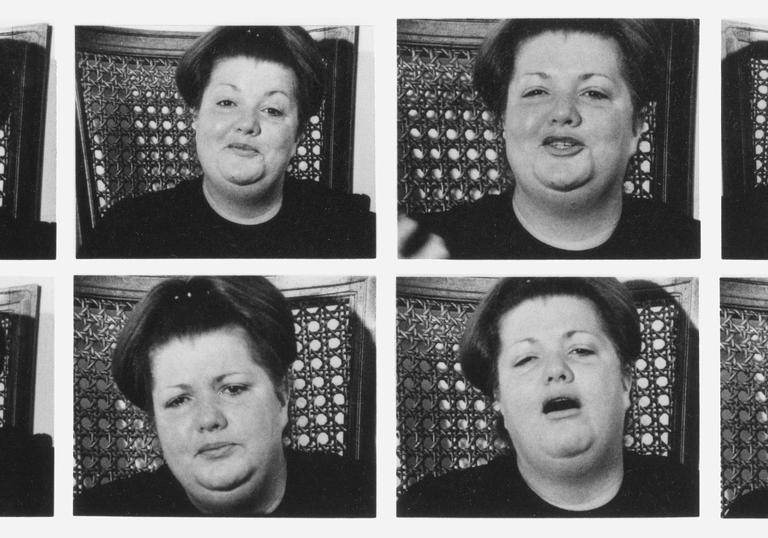Cinema has ‘looked at’ women since its dawn, but with women reclaiming their place behind the camera they began to present new ways of looking, at each other, at men and at themselves.
The subjects of these short films lent themselves to a variety of innovative approaches to filmmaking. This programme is a smorgasbord of genres: narrative, documentary, animated and experimental films, many of which utilised dreams, diaries, performance or other creative means of storytelling.
With the advent of the birth control pill and the Sexual Revolution, women could now embrace sex as something for their own pleasure, not only for reproduction. As lesbians began to live openly, they voiced their desires. And as women began to ask why they were still judged by how they looked, love relationships between men and women also changed.
* This film has been locally classified by the City of London Corporation
Nazmia Jamal is probably best described as an interested party. She is often to be found on the noisy periphery or at the quiet centre of feminist or queer happenings and has poked her fingers into a surprising number of pies since arriving in London in the late 1990s. She was a programmer at the BFI Flare, formerly the London Lesbian & Gay Film Festival, and has worked in education for many years. She is a cultural producer and activist of sorts - although neither of these descriptions is quite right.
Ros Cranston is a curator of Non-Fiction Film and Television at the BFI National Archive. Her interests include women documentary filmmakers, political and campaigning film and the documentary and fiction work of Ken Loach. She is leader of the BFI project This Working Life, which celebrates Britain’s coalmining, shipbuilding and steelmaking heritage on film. She contributed chapters to Shadows of Progress: Documentary Films of Post-War Britain (Palgrave/BFI, 2010), and has contributed to BFI Screenonline, Mediatheques, DVD releases and Sight & Sound magazine.
Selina Robertson is a freelance film programmer and writer who works part time at the Independent Cinema Office. She is a PhD candidate at Birkbeck researching the curatorial and film programming histories of London’ feminist film collectives of the 1980s. In 2007, alongside Sarah Wood, she co-founded Club des Femmes - a queer feminist film curatorial collective. @clubdesfemmes
Charlotte Procter is an archivist, film programmer and Collection Manager at LUX Moving Image. Her research foregrounds feminist and radical visual cultures, engaging with debates surrounding the preservation and activation of those practices. Since 2013 she has been part of the Cinenova Working Group, a collective that preserves and promotes the feminist film and video collection Cinenova. In 2017 she curated a programme series of recent restorations of women’s experimental films from the UK for the Âge d'Or festival at the Cinémathèque Royale de Belgique.
Curated by: Ann Deborah Levy and Kirsten Larvick, Co-Chairs, the Women’s Film Preservation Fund, with programming assistance from Susan Lazarus and Amy Aquilino
The Women's Film Preservation Fund (WFPF) is the only programme in the world dedicated to preserving the cultural legacy of women in the industry through preserving films made by women. Founded in 1995 by New York Women in Film & Television in conjunction with the Museum of Modern Art (MoMA), WFPF has preserved more than 150 American films in which women have played key creative roles. These include works by early feminists, women of colour, social activists and artists that represent unique and irreplaceable contributions to American cinematic heritage. Films already preserved range from those of early pioneers, Lois Weber and Alice Guy Blaché, experimental filmmaker, Maya Deren, animator Mary Ellen Bute, to more contemporary feature director Julie Dash; director and cinematographer Jessie Maple; documentarians Trinh T. Minh-ha and Barbara Kopple, and more. The WFPF is rewriting the film history books, one moving picture at a time.
More information can be found online at: www.womensfilmpreservationfund.org
New York Women in Film & Television (NYWIFT) supports women calling the shots in film, television and digital media. NYWIFT energises the careers of women in entertainment by illuminating their achievements, providing training and professional development, and advocating for equality. The preeminent entertainment industry association for women in New York, NYWIFT brings together nearly 2,100 women and men working both above and below the line. NYWIFT is part of a network of 40 women in film chapters worldwide, representing more than 10,000 members.
More information can be found online at: www.NYWIFT.org






